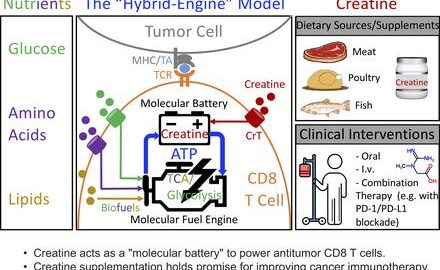Nutritional supplements for America’s Special Ops
A Special Report for NavySeals.com
Intro
Special Operations Forces (SOF) such as Navy SEALs, Army Special Forces, Air Force Para-Rescue, and Marine Recon, as well as law enforcement tactical units (SWAT), face unique challenges that manifest themselves both physically and mentally.
The extremes of training and combat can dramatically reduce performance: Immune suppression; changes in mental acuity/increases in reaction time; reductions in androgen production (testosterone); increased susceptibility to cold; increased oxidative stress; and other factors will affect the performance of these soldiers directly or indirectly. These highly-specialized soldiers are always looking for an edge to avoid many of the aforementioned problems, and any edge can mean the difference between life and death, or the ability to perform at their peak.
Many soldiers in special operations are turning to the use of nutritional supplements in hopes that it will combat some of the problems listed above. For example, the Naval Health Research Center examined the use of nutritional supplements by SEALs and found approximately 78% of the Naval Special Warfare community poled currently use a variety of nutritional supplements ( “Use of supplements by Navy SEALs” Med.Sci.in Sports.Excercise. Vol.30, Number 5 (S) 1998). The study also found that the source of information SEALs relied on in choosing which supplements to use came from their fellow operators and bodybuilding magazines. Neither of these sources would be considered as accurate and unbiased sources of information.
A dietary supplement survey given to 2,215 men entering U.S. Army Special Forces and Ranger training schools (Arsenault J, Kennedy J..Dietary supplement use in U.S. Army Special Operations candidates. Mil Med. 1999.Jul;164(7):495-501) found Eighty-five percent of the men reported past or present use of a supplement, 64% reported current use, and 35% reported daily use of nutritional supplements for a variety of reasons. It is reasonable to assume similar figures exist for other branches of the US military in regards to its special operations units.
An ever-growing body of research is demonstrating that certain nutritional supplements have the potential to greatly assist performance and overall health of SOF soldiers. However, these supplements must be specific to the populations in question (in this case SOF) and must be validated for efficacy and long term safety. The vast majority of people, including most medical professionals and nutritionists, have only a rudimentary understanding of nutritional supplements, and little knowledge regarding what SOF operators face in training or combat. Knowledge of both is required for future development to take place. Though some within the military community that look for various nutritional-based methods of improving SOF soldiers performance feel there is a lack of data to support the use of nutritional supplements, the data that does exist is compelling and more extensive then many may realize.
With additional research, supplements for SOF soldiers could be highly targeted to a specific unit, branch, or perhaps even mission specific. For example, solders that will be in the field at high altitudes might be given a highly specialized supplement for that environment, while another mission scenario might require a different formula. Trainees in BUD/S for example might be given a supplement to help with joint pain (a common complaint) and so on. There is work yet to be done, yet much effort and knowledge already could and should be acted on. What follows is just a small example of the research that has been carried out in looking at the effects of various supplements that concern SOF soldiers. A plethora of data suggests various inexpensive and safe supplements can reduce the hearing loss due to concussive noises, reduce oxidative stress, reduce immune suppression, improve mental acuity and endurance, as well as other desirable outcomes.
Hearing and Lung protection against High-energy impulse noise (BLAST)
Due to the regular exposure of high-energy impulse noise (BLAST) by soldiers, permanent hearing loss is a serious problem that can affect soldiers’ operational effectiveness as well as their long-term health and combat readiness. Several studies find the mineral Magnesium quite effective for reducing hearing losses due to BLAST. Animal experiments find there is a correlation between serum magnesium level and noise-induced permanent hearing threshold shifts (NIPTS), so researchers looked to see if this mineral would act as a direct prophylactic against hearing loss in humans. Three hundred healthy, normal-hearing recruits who underwent two months of basic military training, including repeated exposures to high levels of impulse noises (gun fire, explosives, etc.) were tested. During this placebo-controlled, double-blind study (Attias J. et al. Oral magnesium intake reduces permanent hearing loss induced by noise exposure. Am J Otolaryngol. 1994 Jan-Feb;15(1):26-32), subjects received either 167 magnesium aspartate or placebo daily. The results showed permanent hearing damage was significantly reduced with the magnesium group vs. placebo. In fact, the results were so impressive the researchers concluded “This study may introduce a significant natural agent for the reduction of hearing damages in noise-exposed population.” Additional placebo-controlled double blind studies have found the same effects of magnesium’s protective effects on hearing loss from high impulse noise induced damage (Joachims Z, et al. Oral magnesium supplementation as prophylaxis for noise-induced hearing loss: results of a double blind field study.Schriftenr Ver Wasser Boden Lufthyg. 1993;88:503-16.).
Another area of the body particularly sensitive to damage from BLAST is the lungs. In this instance, it is an abrupt rise in atmospheric pressure above ambient lasting for a very short period via concussive forces from detonations or other causes. Not surprisingly, exposure to high-level BLAST can be lethal to soldiers. Low-level BLAST encountered by military personnel during training and combat can also cause significant injury to sensitive organs and other areas of the body. Research carried out at Walter Reed Army Institute of Research has shown in several animal models that exposure to low-level BLAST results in pathological changes to the animals’ lungs. Their conclusion was that exposure to BLAST can lead to antioxidant depletion and oxidative damage with an increased risk of long term lung problems such as respiratory insufficiency and adult respiratory distress syndrome (ARDS). Their report (Elsayed NM, Gorbunov NV..Interplay between high energy impulse noise (blast) and antioxidants in the lung. Toxicology. 2003 Jul 15;189(1-2):63-74) suggests a potential benefit from antioxidant supplementation before soldiers are exposure to BLAST. Considering how inexpensive and safe magnesium and various antioxidants (i.e. vitamin C, vitamin E, etc.) are compared to the risk to hearing and lungs from BLAST, it behooves SOF soldiers to consider the use of the above and for medical-military institutions to consider recommending these compounds.
Reducing injuries and soreness from training and high operational tempos.
The extremely high stress levels placed on the human body in training or combat often leads to non-combat-related injuries. Knee pain, back pain, and other issues are common and often result in a recruit having to drop out of selection or can reduce the combat effectiveness of veteran soldiers in the field. Thus, anything that can reduce the occurrence of injuries or treat them can potentially assist trainees in surviving the extremes of the selection process of SOF units or increase the operational effectiveness and longevity of active operators in the field. One cause of chronic pain to SOF soldiers is degenerative joint disease, which can be greatly exacerbated by the extremes of training. The Medical Department of Naval Special Warfare Command conducted a study with thirty-four males from the U.S. Navy diving and SpecWar community with chronic pain of the knee or lower back who had been diagnosed with degenerative joint disease (DJD).
This was a 16-week randomized, double-blind, placebo-controlled crossover trial used a combination of glucosamine HCl (1,500 mg/day), chondroitin sulfate (1,200 mg/day), and manganese ascorbate (228 mg/day) given to half the men and compared to a placebo. The study found this combination of supplements was effective for treating their knee pain but did not appear to improve lower back pain. No side effects were reported. SOF soldiers and trainees suffering from chronic knee pain may want to consider employing this therapy (Leffler CT et al. Glucosamine, chondroitin, and manganese ascorbate for degenerative joint disease of the knee or low back: a randomized, double blind, placebo-controlled pilot study. Mil Med. 1999 Feb; 164(2):85-91).
Aches and pains, bumps and bruises, and stress injuries of all kinds are common during all facets of training. The high training and operational tempo can also lead to a reduction in overall health and immunity, making the prospective SOF operator more susceptible to infections and other ailments. One study looked at the use of a post- exercise protein drink with Marine recruits going through basic training. Healthy male US Marine recruits from six platoons were randomly assigned to three treatments within each platoon.
Nutrients supplemented immediately post-exercise during the 54-day basic training were either placebo , control, or the protein supplement. The results were telling and impressive. Compared with placebo and control groups, the protein-supplemented group had an average of 33% fewer total medical visits, 28% fewer visits due to bacterial/viral infections, 37% fewer visits due to muscle/joint problems, and an astounding 83% fewer visits due to heat exhaustion. Furthermore, the study found muscle soreness immediately post-exercise was reduced by protein supplementation versus placebo and control groups. The researchers concluded “Postexercise protein supplementation may not only enhance muscle protein deposition but it also has significant potential to positively impact health, muscle soreness, and tissue hydration during prolonged intense exercise training, suggesting a potential therapeutic approach for the prevention of health problems in severely stressed exercising populations.” This study done on marine recruits (Flakoll P. et al. Post exercise protein supplementation improves health and muscle soreness during basic military training in Marine recruits. J Appl Physiol. 2004 Mar;96(3):951-6. Epub 2003 Dec 2.) shows an inexpensive and safe protein supplement used post-exercise could have profound effects on the drop out rate of recruits and greatly reduce the number of medical visits, infections, and pain.
Dedicated Formulas for SOF?
Following the research that currently exists would indicate dedicated formulas for SOF ( as discussed in SOTECH Volume: 3 Issue: 7 Oct 02, 2005) and related mil populations, could be of considerable value, yet there appears to exist a systemic disconnect between the published data and acceptance within the mil medical community at this time, leaving the individual soldier to make due with information supplied by non vetted sources.
Conclusion
The reader should be aware, as impressive as the above may seem, it’s only the tip of the proverbial iceberg regarding the many nutrients that could improve the operational effectiveness and longevity of special operations soldiers. For example, some simple antioxidants such as Vitamin E, C, selenium, zinc, and various plant-based phyto nutrients, given in high enough doses have been found to be effective radioprotectants (e.g. they protect from radiation).
There are just too many studies and nutrients to list in this article that could be of great use to SOF operators and those in training to become one. Regardless, the nutritional and supplement modalities outlined above may increase the operational life span of the special operations soldier and should be considered a front-line approach.
Will Brink is the owner of the Brinkzone Blog. Will has over 30 years experience as a respected author, columnist and consultant, to the supplement, fitness, bodybuilding, and weight loss industry and has been extensively published. Will graduated from Harvard University with a concentration in the natural sciences, and is a consultant to major supplement, dairy, and pharmaceutical companies.
His often ground breaking articles can be found in publications such as Lets Live, Muscle Media 2000, MuscleMag International, The Life Extension Magazine, Muscle n Fitness, Inside Karate, Exercise For Men Only, Body International, Power, Oxygen, Penthouse, Women’s World and The Townsend Letter For Doctors.
He’s also been published in peer reviewed journals.
Will is the author of the popular e-books, both accompanied by private members forum access , Bodybuilding Revealed & Fat Loss Revealed.
You can also buy Will’s other books on Amazon, Apple iBook, and Barnes and Noble.







Can you tell me where I can find Full Force Focus Intensity Supplements for Phillips Performance?
Having a hard time finding it.
Thanks,